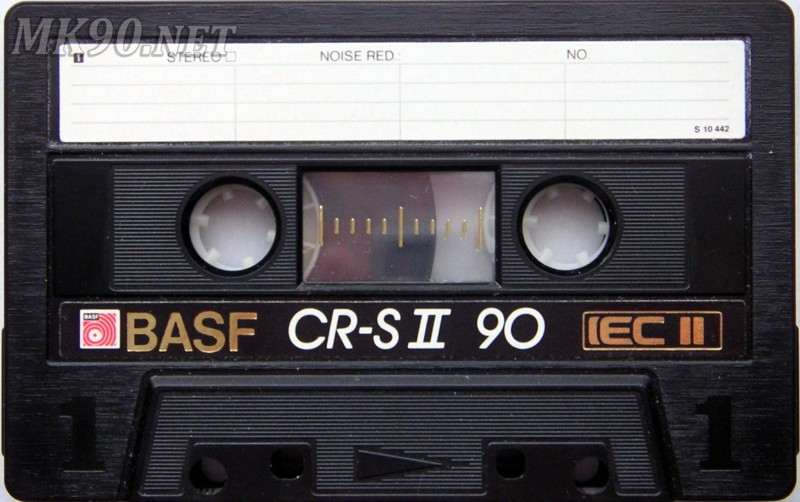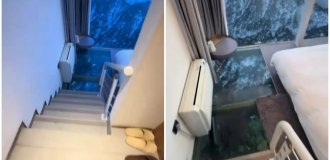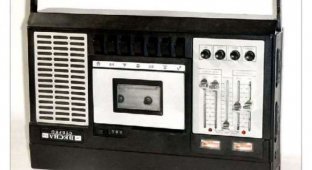Audio cassettes in the USSR. A few words about the audio cassettes on which we listened to our favorite music! I am not considering reel-to-reel tape recorders and reels for them in this topic, since this is closer to audiophiles, lovers of high quality audio equipment!
On the territory of the USSR, one brand of audio cassettes reigned - the famous MK-60 cassettes. The name was simply deciphered - a tape cassette lasting 60 minutes. They were made on the basis of iron oxide, and their quality left much to be desired. They cost 4 rubles for one cassette. Occasionally, chromium-based cassettes came across; they were of noticeably higher quality and more expensive.
MK - 60 price 4 rubles from Contact.

However, you had to run around for ordinary MK-60 audio cassettes; they were sold freely in Soviet stores for only a short time. When I bought my first cassette player, I very quickly began to miss the only cassette that came with the tape recorder.
MK - 60 from Polimerfoto. 4 rub.

The cassettes didn't last long for me. Either the rollers in the cassettes were crooked, or the tape was cut unevenly... in general, after one or two listenings, the tape jammed in them. The cassettes had to be “kneaded” and tapped, but this did not always help. The solution was found as follows: the cassettes were disassembled (more precisely, they were broken lengthwise, since the Soviet industry glued the halves of audio cassettes together, and did not twist them with bolts, as is common throughout the world), the film on which the magnetic tape lay was thrown away, and the cassette continued to work...
MK - 60 price 4 rubles

But this was not the end of the low quality of Soviet audio cassettes. The film in the cassettes often “crumbled,” that is, the working layer crumbled and clogged the heads. The cassette began to creak. The audio cassette clamping mechanism often became deformed or even fell off. Then they tried to make it themselves, and sometimes they simply stuffed cotton wool instead.
The most important inconvenience of cassettes made in the USSR was that they were 60 minutes long, while music albums usually lasted 45 minutes, sometimes 90 minutes. Simply put, 60-minute cassettes were in no way suitable for the recordings needed. And considering that they were also in short supply...
Fortunately, ready-made cassettes with recordings were still sold in the USSR. Not the ones you could buy in recording studios, but the ones they sold in stores. These are MK-44 cassettes. Duration – 44 minutes. Usually they recorded the same songs that could be freely bought on gramophone records, but cheaper. And these cassettes themselves, due to recording, were more expensive than similar blank cassettes.
What did you have to do? And it’s very simple - in the absence of normal audio cassettes, these same cassettes with recordings were bought, the original phonogram was erased, and what was needed was recorded on top. These cassettes were almost always on sale, as they were reluctant to take them due to the relatively high price (meaning per minute of recording). These cassettes had one more advantage - they almost never jammed in tape recorders, apparently because they used less tape, or the tape was thicker.
It was all so Soviet-style: make a cassette, record music on it, make at least passable printing for it with a list of songs and put it on sale, so that the recording will then be erased and the list of songs crossed out. This is how the recordings of Anna German, Lev Leshchenko and numerous vocal and instrumental ensembles were recorded and then demagnetized en masse.



One fine day, the incredible happened - almost overnight, imported audio cassettes appeared in stores in the USSR. And what kind! The shelves were full of 90-minute "SONY", "DENON" and other companies. At first they were bought in whole blocks! They recorded only what was dearest and closest to the heart of the Soviet citizen - foreign music and Russian underground thieves. And then the Soviet MK-60 simply “died” for us. They stopped buying them when they realized that Japanese audio cassettes were serious and would last for a long time. Before this, imported audio cassettes could only be bought from speculators for 25 rubles per cassette. Now these cassettes were freely sold for 9 rubles. It turned out that it is easy to fight speculators, you just need to overcome the deficit.
Made in Japan cassette by DENON

Representative from Germany BASF

Another representative from Germany

FISHER cassette from Japan

GOLD STAR (now LG, "luxury gold star") from South Korea

JVC from Japan

Japan company TDK

SONY

KONICA Japan

SANYO Electrics Japan

SKC (Sunkyong Magnetic Ltd (Korea)

SOUNDBREEZE (SNC Soda Nikka (Japan)

Mayak USSR cassette (mostly came with MAYAK tape recorders)

SAMSUNG (Samsung (Korea)

SHARP (Sharp (Japan)

MAXELL Japan

RAKS (Raks Electronics Co (Turkey)

Here is a set of cassettes that were sold in the USSR for 9-00 re.































